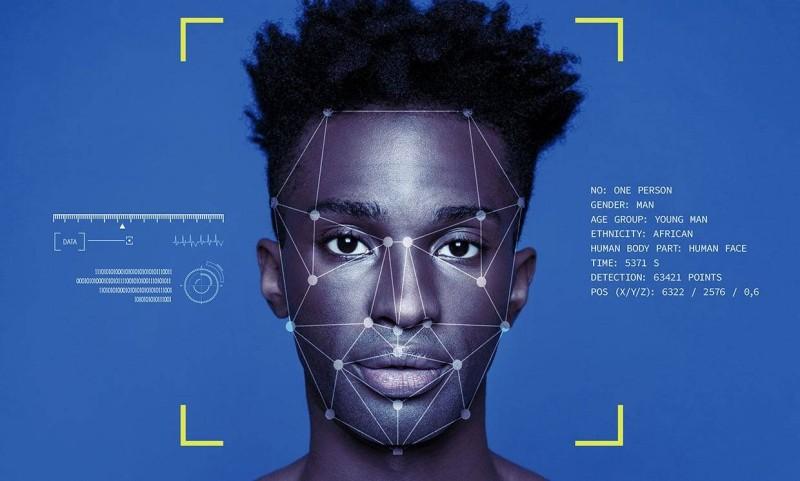The features of your face will lead to getting to know you from the billions of pictures, no one will definitely tell you how it will happen and when.
What is certain is that many are currently dealing with the technique of "checking the face" to enter their bank accounts, mobile phones and other smart devices, which is voluntary and personal use, but can your image be taken from an electronic account and kept in a database without your permission, to useFor security or supervisory purposes?
The "face recognition" is "biometric biological measurements that can verify or identify a person through his face features against a database of faces.Despite the criticism of this technology on privacy, commercial and government applications are continuously expanded.
A few days ago, the South Korean government announced that it would test the technique of facial recognition to track the Corona virus injuries, with the aim of alleviating the burden of the pressures that health workers are exposed to.The experimental project, which will start in January, will use artificial intelligence, face recognition and thousands of surveillance cameras to track the movement of people with virus.
But the opposition in South Korea criticized the move "because the government will spy on its citizens under the pretext of Kovid," said Barack Day Chul, a member of the Popular Movement Party.
تخطى مواضيع قد تهمك وواصل القراءةمواضيع قد تهمكTopics that may interest you end
Criticism is not limited to the opposition in South Korea, as fears of violation of "face recognition" technology for the privacy of people are increasing.Last month, the Information Commissioner (ICO) Office in Britain, the body concerned with protecting the privacy of information, announced that it will impose a fine on the Clearview AI technology company with a value of up to $ 20 million for violating data protection laws in the United Kingdom.
Billions of pictures
On its website, Clarefio promotes its leadership in supporting law enforcement organizations in reaching the wanted persons, and determining their identities.The company, which is based in the United States, says it has the "largest known database that includes more than 10 billion aspects" from the news media, Mugshot sites and public social media.
The system allows the user - for example, a police officer seeking to identify the suspect - to download a picture of his face and find matches in the database collected from the Internet and social media.
But the British Information Privacy Protection Authority, and after a joint investigation with the Information Commissioner Office in Australia, suggested that the American company "collect information and pictures for a large number of people in the United Kingdom without knowing them and through websites, including social media."
Nevertheless, the British Authority acknowledged that the services of "Clarefio" were available for free for security agencies in Britain for a trial period, but this cooperation was recently cut, and that it asked the police to erase all the photos and information they had for British people.

The founder of the "Clarefio" and its chairman expressed his "disappointment to impose a fine on his company, because it acted to serve the interests of Britain and helped the security services resolve the heinous crimes against children, women and the elderly."
A trip to the world of metaphors
Promising market
تخطى البودكاست وواصل القراءةالبودكاستمراهقتي (Morahakaty)Teenage taps, from the presentation of a dignity as a vehicle and prepared by Mays Baqi.
Episodes
Podcast End
The global "face recognition" industry is expected to grow by 15 % from 2021 to 2028 and its value is estimated at about $ 3.9 billion in 2020, according to GrandView research.
As of December 2012, passengers of Eurostar trains from London can record their tickets and passports using face verification.Eurostar entered into a partnership with the IPROV face verification company to launch the experimental version.
But the CEO and founder of the UK, Andrew Bud, stresses in an interview with the BBC Arab, the need to distinguish between "face recognition" and "face verification". In the last case, the person's consent is explicit and the user's benefit is vital.
"Using [face recognition], the technology is employed to determine the identity of people. In checking the face, this does not happen, because the user agrees, knows and benefits because the identity he offers is verified."
"Bod" also stresses the need to pay more attention to how to process the data collected, especially after the Corona epidemic caused the Internet to depend mainly in most services. "It is also believed that the technology of facial verification is strong and very flexible and can be used to protecteverybody.
Fears and warnings
Privacy protection organizations such as the "Electronic Border Foundation", EFF in British, organize campaigns to impose a full ban on governments using facial recognition technology, whether with or without the approval of people, and not to deal with the private companies that they use.
"When the police treat the entire society as suspects by directing (for example) mobile cameras and face recognition devices to everyone who walks to find the suspects, they treat everyone as criminals and this is a devastating confidence.Public safety. "
"This technology is very dangerous, and what law enforcement agencies need all over the world is a serious work to reform their relations with the societies they serve and build confidence," Schwartz added.
While admits the benefits of using "face recognition" in resolving crimes, Schwartz says: "The price is very expensive when it comes to confronting monitoring," stressing its threat to freedom of expression and protest, violation of privacy, and lack of accuracy in detecting individuals from different ethnic backgrounds.
The South Wales Activities have announced that it will be the first British force to develop and use face recognition technology in the actual time to identify the wanted persons through a new application on portable officers phones.
Amnesty International also launched the Ban Scan campaign, which called for a ban on technology after reports of its use by the New York Police Administration to target activists.
